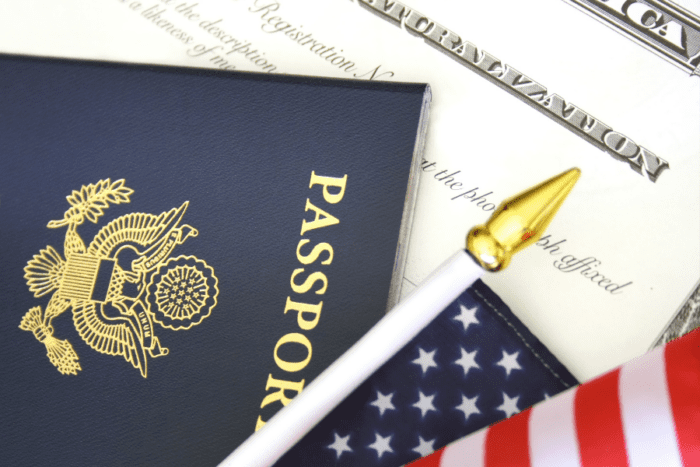Dateline: Kotor, Montenegro
Today we’re just going to jump right in. You’ve come for my best advice, and that’s what you’re going to get.
US citizens run in circles to get tax breaks. These include all sorts of tax credits, from the child tax credit to the earned income tax credit to lower the federal income tax and breaks on capital gains tax, amongst others. People contribute to a health savings account, stock money away in retirement accounts to grow tax-free, and hope they’re offered flexible spending accounts by their employers.
This might or might not even apply to your adjusted gross income, and you can’t necessarily deduct all your contributions on your federal income taxes.
You can completely avoid paying not just your federal taxes but all sorts of taxes in this tax system, and you can do so legally.
So here it is the four ways you can legally avoid paying taxes on US income tax:
1. Move outside of the United States

One of the fastest and easiest ways for tax deduction is to live outside the United States the vast majority of the time. This is called the Physical Presence test of the Foreign Earned Income Exclusion(FEIE). This test has been well covered, and it’s a very common tax strategy for most expats.
According to the IRS, if you reside outside of the United States at least 330 days out of 365, you can exempt $101,300 of taxable income from your annual taxes. The beauty of this strategy is that you can leave the US any time you want. I’m always telling you to get off your tuckus and go move today. Well, you can! And if you move, you can start claiming benefits ostensibly 34 days back. Plus, even if you’re like me and you never go to the US, you theoretically get one month in the US.
The one thing to be aware of is that the exemption specifically refers to time spent in a foreign country or countries. It’s not just about “being out of the United States 330 days”; it’s about “being in a foreign country or countries.” What difference does that make? What it comes down to is that international waters and air spaces do not count.
For example, recently the guy who was working on a yacht discovered that his time outside the US didn’t qualify him for the FEIE. International waters do not count, so once he passed 35 days in international waters, he lost the exemption — even if he never went to the US.
In general, however, the physical presence test is easy to qualify for. The only other thing to be aware of is if you have many flights over oceans. It’s more of an issue when you’ve spent four weeks in the US and then have several long overseas flights. If they ever look at your time in international air spaces, they may just see that you were flying eight or nine days over oceans or that you were on a repositioning cruise for 12 days in the middle of the sea and disqualify yourself without knowing.
So, while the Physical Presence test is a great and very simple strategy for reducing taxes, there are a few things you’ve got to be aware of to ensure it works.
2. Establish a residence somewhere else

Obviously, one of the things I always tell people to do is to get a second residency. It makes sense on so many levels and for so many purposes. Reducing your US income tax is one of these purposes. However, there are only certain types of residencies that qualify (although that’s an entirely different subject). It really depends on your situation.
In general, I don’t think this is a great idea. This is for people who want to spend more time in the US and can actually establish residence outside the United States. If you’re just going to be a nomad and a wanderer in a different country every other week for an entire year and then try and do the bona fide residence test, it’s not going to work. Even if you have a residence permit, it’s not going to work. So this is a very difficult one.
If you qualify under the bona fide residence test, you can spend up to four months in the US. However, there are a lot of tax issues that come up if you’re running a business that you own and you’re spending four months a year in the US. The actual qualification process is very subjective. According to the IRS:
Questions of bona fide residence are determined on a case-by-case basis, taking into account such factors as your intention or the purpose of your trip and the nature and length of your stay abroad. You must show the Internal Revenue Service (IRS) that you have been a bona fide resident of a foreign country or countries for an uninterrupted period that includes an entire tax year.
3. Move to one of the US territories

Another legal strategy that is widely talked about is moving to a US territory like Puerto Rico. Of course, Puerto Rico is bankrupt and, personally, I don’t really trust them. But if you don’t mind the bad offshore fundamentals, there are two different ways you can save on US income taxes by moving your entire business to Puerto Rico.
The first tax incentive is Act 20, also known as the Export Service Act. The act targets certain service businesses by offering incentives such as a low 4% export income tax and 0% tax on earnings and profits to those who choose to relocate and export their services from the island. You can see the full list of qualifying service businesses here.
Act 22, or the Individual Investors Act, on the other hand, specifically targets high net worth investors. The draw? Zero percent tax on interest, dividends, and capital gains. The only catch is that you have to spend at least half the year (183 days) in Puerto Rico. You can find more details on the act here.
A lesser-known act is the International Financial Center Regulatory Act, or Act 273. Under this act, tax exemptions are made to businesses set up and engaged in eligible activities in Puerto Rico. To qualify, the international financial entity (IFE) must have authorized capital stock no less than $5 million. The entity must also employ at least four individuals.
Many people think they can qualify under Act 273 by hiring chefs, maids, and chauffeurs and be fine. You cannot. That’s a terrible idea. You should hire real employees who work at a real business, even if they’re just low-level employees not doing a ton of work. Hiring a maid and a driver is not going to cut it. If they audit you, you’ll be in trouble.
Puerto Rico is not the only US territory to offer tax incentives to businesses and investors. The US Virgin Islands also has a program. The programs in both countries allow you to cut your taxes by about 90%. The caveat is that you need to spend at least six months a year there. Everyone will tell you that there’s some work-around, blah-blah-blah, but it’s very similar to the bona fide residence test, and it’s actually even worse because there’s a second closer connection test to determine where you are mainly based.
Puerto Rico and the US Virgin Islands are great programs if you’re willing to really live there. And by really living there, I mean at least six months a year AND not spending the other just less than six months on the mainland. You really shouldn’t spend that much time in the US mainland under these programs — only a few months a year.
The potential benefit of these programs is best suited for those who are making large amounts of money and don’t want to settle for the FEIE (outlined in options one and two). Because the FEIE only allows you to exempt up to $101,300 in 2016 and taxes everything else you make, the opportunity of 0-4% tax rates is actually very attractive. If you’re making big money, go for Puerto Rico.
Do understand that there are ways that you can make a million dollars and not pay tax on the whole thing if you run a business overseas. It’s just that Puerto Rico allows you to spend the money. It allows you to take all the money out rather than keep it all in your business.
4. Renounce your citizenship

For some people, renouncing US citizenship doesn’t make a lot of financial sense, even with the tax savings. If you renounce, you will have to pay an exit tax on all unrealized capital gains, from your business (which can be hard to value) to real estate to Bitcoins. For some, that can be quite a blow.
However, if you have less than $2 million to your name, you do not have to pay the exit tax — just as long as you’ve been paying your income taxes properly up until you renounce. Most people will not pay an exit tax. If you’ve paid a lot in income taxes in the past five years, then you will still have an exit tax. The good news is that you can still receive your government benefits and, in some cases, continue using US banks after renouncing.
The best news of all, however, is that if you renounce your citizenship, you’re done forever. No more jumping through hoops or handing over half your income to the government each year. It’s a drastic move, but it’s legal. It’s not for everyone, but there are definitely certain cases where it makes sense for an individual to renounce their citizenship to get out from under the crushing burden of the US income tax.









